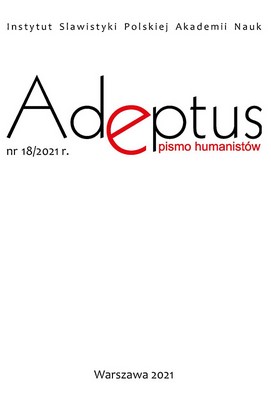Language Practices in a Family of Prussian Language Revivalists: Conclusions Based on Short-Term Participant Observation
Language Practices in a Family of Prussian Language Revivalists: Conclusions Based on Short-Term Participant Observation
Author(s): Piotr SzatkowskiSubject(s): Cultural history, Foreign languages learning, Lexis, Historical Linguistics, Western Slavic Languages
Published by: Instytut Slawistyki Polskiej Akademii Nauk
Keywords: Prussian language; Baltic languages; language revival; language activism; language practices; code switching; code mixing;
Summary/Abstract: The Prussian language (ISO code: prg) is a Baltic language considered to be dead since at least the beginning of the eighteenth century. The Baltic Prussians, closely related to Lithuanians and Latvians, had been conquered and Christianized by the Teutonic Order by the end of the thirteenth century. Since then, the ongoing process of assimilation led to the extinction of the ancient language, attested only by a few glossaries and three translations of the Lutheran catechisms from the sixteenth century. The language remained unused until the 1980s, when a group of scholars began its reconstruction. Some years later, the revival movement emerged, consisting of activists living in Poland, Russia (Kaliningrad Region), Lithuania, Latvia and Germany, claiming their Old Prussian roots or spiritual connection to the land and/or the people. Their efforts resulted in changing the language status from extinct to living in 2009 (SIL International) and to dormant (Ethnologue). There are at least three children using Prussian as their L1 language; there are also modern translations, poems, Facebook groups and a YouTube channel. This study is based on short-term participant observation of language practices in one of the Prussian-speaking families and considers examples of Polish lexical and grammatical influences, code switching and code mixing.
Journal: Adeptus
- Issue Year: 2021
- Issue No: 18
- Page Range: 1-18
- Page Count: 18
- Language: English

